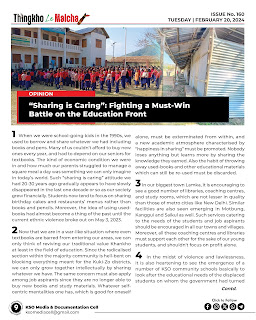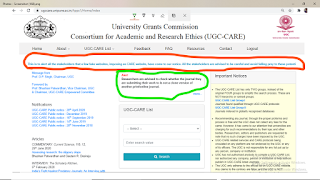“Sharing is Caring”: Fighting a Must-Win Battle on the Education Front
1
When we were school-going kids in the 1990s, we used to borrow and share whatever we have including books and pens. Many of us couldn’t afford to buy new ones every year, and had to depend on our seniors for textbooks. The kind of economic condition we were in and how much our parents struggled to manage a square meal a day was something we can only imagine in today’s world. Such “sharing is caring” attitude we had 20-30 years ago gradually appears to have slowly disappeared in the last one decade or so as our society grew financially. Students now tend to focus on sharing birthday cakes and restaurants’ menus rather than books and pencils. Moreover, the idea of using used-books had almost become a thing of the past until the current ethnic violence broke out on May 3, 2023.
2
Now that we are into a war-like situation where even textbooks are barred from entering our areas, we can only think of reviving our traditional value Khankho at least in the field of education. Since the radicalised section within the majority community is hell-bent on blocking everything meant for the Kuki-Zo districts, we can only grow together intellectually by sharing whatever we have. The same concern must also apply among job aspirants since they are no longer able to buy new books and study materials. Whatever self-centric mentalities one has, which is good for oneself alone, must be exterminated from within, and a new academic atmosphere characterised by "happiness in sharing" must be promoted. Nobody loses anything but learns more by sharing the knowledge they earned. Also the habit of throwing away used-books and other educational materials which can still be re-used must be discarded.
3
In our biggest town Lamka, it is encouraging to see a good number of libraries, coaching centres, and study rooms, which are not lesser in quality than those of metro cities like New Delhi. Similar facilities are also seen emerging in Motbung, Kanggui and Saikul as well. Such services catering to the needs of the students and job aspirants should be encouraged in all our towns and villages. Moreover, all these coaching centres and libraries must support each other for the sake of our young students, and shouldn't focus on profit alone.
4
In the midst of violence and lawlessness, it is also heartening to see the emergence of a number of KSO community schools basically to look after the educational needs of the displaced students on whom the government had turned its back. This reminds us of the war-torn Vietnam in the 1970s where the Vietnamese refused to give-up on the education of their kids even if they are to dig underneath trenches and tunnels for the purpose. The KSO and all their support staff deserve our moral support and encouragement for this ingenious initiative!
5
There are also a number of private institutions offering heavy discounts, or even free scholarships, for displaced students and wards of the brave volunteers. Some villages and towns having government schools are also investing extra time and energy to look after the academic needs of the increasing numbers of students. One such school worth mentioning is Tuibong Govt. High School where the teachers and staff had to work beyond the call of duty to provide basic education to the students who are mostly from displaced families.
6
Nights in the last five days have always been busy for youth clubs of all the Vengs[localities] and villages in Lamka. This was inevitable not only due to the unfortunate “The Wall of Remembrance Massacre” on February 15, but also for the students appearing COHSEM Examination from February 21. Now, as the Matriculate Examination under BOSEM is also approaching, it would be wise to maintain the kind of vigilance youth clubs maintain till date to avoid any unforeseen situation that may disturb the education atmosphere during exams.
7
And for you all, young students on whom the fate of our future lies, here’s some take-home pieces of advice for your exams:
(i) Always remember we are fighting a must-win battle not only in the frontlines but also on the education fronts. Whatever you learn today in schools and write in the exams hall all matters to win this war.
(ii) Don’t forget to take enough rest (7-8 hours of sleep); take light and healthy food, and avoid both heavy food and hunger; revise your notes and key points instead of reading too much during exams; if you feel too excited/nervous on the first day, remember it is natural…take a deep breath and relax, and tell yourself "all is well"; reach the exam centre 30 minutes ahead of the scheduled time to relax; check all your items including admit card, pens, water bottle, wrist-watch, etc. before going for the exam; attempt as many questions as possible, and remember you can only get points for answering and not for leaving the pages blank (PS: marks wouldn’t be deducted for wrong or bad answers!); be clear, objective and precise in answering, but arrange your sentences according to the nature of the questions; organise your time-schedule in such a way that you will be left with 10-15 minutes for [re]checking after you finish writing your exams, and don’t forget to check your answer-scripts before leaving; and when you come out of the exam hall, and reach the main road, avoid walking/driving with too much thought on the exam until you reach home.
(iii) Always put God ahead of anything else. Do not forget to meditate with your favourite verse and pray before and after the exams.
8
Before winding up, we pay our highest respect to all the brave warriors on the education front who work day-and-night for the sake of the students’ community. We would also like to wish all the council/board exams appearing students the very best. It is our humble prayer that you will all come out with flying colours and make us proud!
(Courtesy: KSO Bulletin Thingkho le Malcha, Issue No.160, February 20, 2024).



Comments
Post a Comment